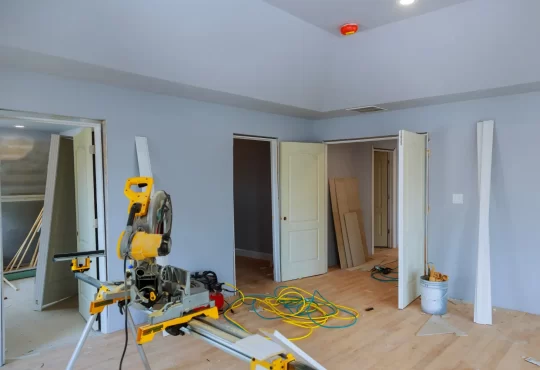
It’s easy to decipher who’s responsible for property damage when the owner is also the resident. However, when you’re a tenant living on someone else’s property, the answer is more nuanced.
- What kind of repairs warrant a deduction from your security deposit?
- Can landlords sue tenants for rental property damages?
This article provides the answers to these questions and more.
Can Landlords Sue Tenants for Rental Property Damages?
Yes, a landlord can take legal actions to sue their tenant for property damages. If your security fund is insufficient to cover the cost of the injury, then you could find yourself as a defendant in small claims court.
Many landlords try to protect their investment by conducting a thorough tenant screening. Follow this link to learn more about making good choices in real estate: https://www.articleritz.com/real-estate-investments-making-good-choices-and-other-tips/amp/.
Types of Tenant Damage
It’s essential to classify tenant damage into different categories because that can infer any actions your landlord takes. More so, it informs whether the insurance agency will favorably respond to any claims for reimbursement. Here are the two types:
- Accidental: Accidental damage refers to unintentional accidents resulting in property damage. These are often due to mishaps or negligence, like spilling wine on the carpet or scratching the hardwood with furniture.
- Intentional: Intentional damage refers to deliberate alterations that mar the property. However, not all changes are malicious. Sometimes a tenant might want to make minor modifications they assume would be okay. Examples include putting nails in the wall to hang photos or installing baby-proof gates.
On the other hand, malice-backed actions are often harder to detect. But clear-cut examples include drawing graffiti on the wall and breaking down doors.
Normal Wear and Tear vs. Tenant Damage
Nothing lasts forever, so it’s expected for the quality of your furnishings, appliances, and even the building to decline with time. However, since this deterioration could resemble intentional misuse or neglect, it could create an opportunity for disputes.
Who’s to say the scuff marks on the kitchen counter aren’t because of the tenant rather than old age. If you want more details on tenant damage vs. normal wear and tear at https://www.baymgmtgroup.com/blog/determine-tenant-damages-vs-wear-tear/.
The difference between the two often lies in the fact that normal wear and tear results from everyday use. Thus, worn carpets, loose door hinges, and fading paint are common examples.
On the other hand, tenant damage often appears suddenly due to misuse or abuse. Examples might include dented walls, broken tiles, and cigarette burns on the furniture.
Security Deposit Deduction Laws
A security deposit is generally one to two months’ rent held by the landlord during a tenancy period. Typically, this money goes towards making repairs and covering unpaid rent and utilities. After your lease expires, you have the right to claim the remainder of your deposit. The essence of having laws is to protect landlords and tenants from misuse of such funds. Find a property manager that understands security deposit laws at https://www.baymgmtgroup.com/philadelphia/.
Landlords can deduct from your security deposit to cover the cost of:
- Unpaid rent
- Breaking your lease
- Damage above and beyond normal wear and tear
If your landlord fails to adhere to security deposit laws by withholding funds or making excessive deductions, you can also sue.
How to Avoid Disputes with your Landlord
- Follow the Lease
Your tenancy isn’t official until you sign a lease, a legal document outlining both parties’ responsibilities. It would be in your best interest to ask for an advanced copy of the lease so you can read it thoroughly before committing.
- Ask Questions
Are you sure you can repaint your walls? If you’re unclear about specific rules, consult your landlord or property manager before acting. You’ll have an easier time avoiding disputes if you’re already on the same page.
- Get Written Permission
After discussing making changes or alterations to your rental apartment, be sure to get it in writing. This step acts as another opportunity to ensure that you agree on the minor details. It also acts as an insurance policy in case your landlord backtracks.
Conclusion
We hope this article helped answer the question. Making repairs is one of the many duties of a landlord. However, when a tenant is at fault, they are legally obligated to pay for it. Otherwise, the property owner can rightfully sue their renter.
You can avoid such disputes by remaining respectful to the property and adhering to your lease. Also, it’s essential to know about tenant damages and security deposit laws to protect yourself from exploitation.




